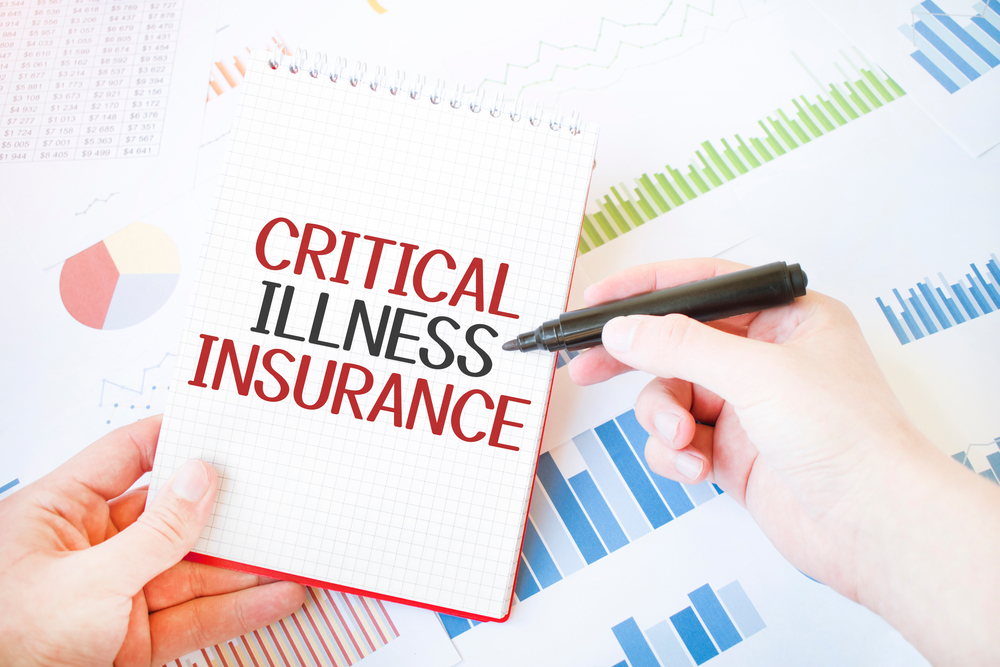What is health insurance?
Health insurance is a type of insurance that covers medical expenses that arise due to an illness. These expenses could be related to hospitalization costs, cost of medicines, or doctor consultation fees. All Singaporeans are covered under MediShield Life, a basic government health plan to cover large medical expenses.
Types of Health Insurance
There are 4 types of health insurance plans. Know the differences in coverage so that you get what you need.
1. MediShield Life
MediShield Life is basic health insurance provided by Singapore’s Ministry of Health for all Singaporeans and Permanent Residents (PRs). It covers large hospital bills and selected costly outpatient treatments, such as dialysis and chemotherapy for cancer.
The insurance is sized for subsidized treatment in public hospitals and pegged at B2/C-type wards. Therefore, if you prefer to stay in an A/B1-type ward or a private hospital, you would need to pay for the excess amount.
2. Hospital cash insurance
Hospital cash insurance pays you a fixed amount of cash when you’re in the hospital. The total amount paid under this policy may be more or less than your actual medical expenses. The policy only pays for a maximum number of days each year or the life of the policy, and the policy will end once the lifetime limit is reached.
There may be a waiting period, a specified period from the start of the policy during which benefits will not be paid under certain conditions. If you are hospitalized during this period, no benefits would be paid.
3. Disability income insurance
Disability income insurance pays you a fixed amount each month (i.e., up to 80% of your average monthly salary) to replace the income you lose if you’re unable to work due to an illness or accident. The policy helps ease your financial loss but will not completely replace your income before the accident or illness.
The payment of benefits usually starts if you are disabled after the deferred period. The monthly income may be paid for up to 5 or 10 years or until you are 60 or 65. The payment will stop or reduce once you have recovered enough to start work again.
4. Long-term care or severe disability insurance
Long-term care or severe disability insurance (e.g., ElderShield and ElderShield Supplements, and CareShield Life) pay for the care you need if you become severely disabled, especially during old age, and need personal and medical care for a prolonged duration.
Characteristics of Health Insurance
1. Reimbursement of actual expenses
Medical insurance mainly pays out according to the actual charges incurred by the insured. The insurance company will process claims based on the benefit items and benefit limits specified in the Benefit Schedule. At most, the insured can get a full payment of medical expenses but will not “earn” any additional cash compensation or allowance.
2. Lifetime renewability
Medical insurance is renewed every year; when deciding whether to renew a policy, insurers consider the past claims history of the insured or the entire risk pool. Therefore, when applying for insurance, you should pay attention to whether the plan contains a “guaranteed lifetime renewal” clause. If the insurance company does not renew your policy and you have to re-apply for insurance if your health status has unfortunately changed, you may face additional premiums or be declined insurance. Also, you should pay attention to the definition of “lifetime,” i.e., whether it means up to the age of 100 or is truly for life.
3. Annual benefit limit per disability
Traditional medical insurance coverage is calculated based on the “benefit limit per disability.” Take cancer as an example, assuming that the “benefit limit per disability” is one million, if the sum insured of 1 million has been fully paid out due to cancer, and the cancer has not yet been cured, all subsequent medical expenses will no longer be reimbursed no matter how many years the treatment takes.
In recent years, a new compensation mechanism has been adopted for medical insurance to calculate coverage based on the “annual benefit limit per disability.” Using the above example again, wherein the “benefit limit per disability” is still 1 million, under the new mechanism, the sum insured can be “resurrected” once per policy year.
According to the example just now, although the sum insured of 1 million has been exhausted, the policy will “revive” the sum insured once in the following policy year and at the beginning of each subsequent policy year, which greatly improves the efficacy of the insurance policy.
4. Geographical limit
When applying for insurance, pay attention to the geographical limits of insurance cover. For example, check whether the coverage area is limited to Singapore, Asia, the world (excluding the United States), or the entire world. In addition, during the insurance application, the insurance company will ask the insured to fill out a residence questionnaire to clarify where their long-term residence is. If you wish to leave your residence for an extended time due to immigration or business, you must report to the insurance company. The insurance company will evaluate the new place of residence and may increase the premium, reduce the sum insured, or even terminate the policy accordingly.
5. Co-insurance
In some plans with co-insurance, the insured need to pay a deductible (or a certain percentage of the covered medical costs) first when they make claims, and the insurance company will pay for the medical expenses that exceed the deductible amount. Co-insurance is a mechanism to control premiums, and the policyholder can choose the appropriate deductible according to their circumstances. The higher a plan’s deductible, the lower the premium.
6. Stepped premiums
For life or critical illness insurance with cash value, premiums are generally charged at a fixed or level rate, and the younger you are when you buy an insurance policy, the less you’ll pay. As for medical insurance, most of them have no cash value. The premium will increase with age. The insurance company will adjust the rate by assessing such factors as medical data, claims, and operating conditions.
Who needs health insurance?
Given the rapid progress in medical technology, cancer may no longer be a terminal illness in the near future.
For example, the “CAR-modified T cell therapy,” jointly developed by immunologists James P. Allison and Tasuku Honjo, two recent Nobel Prize winners in medicine, aims to improve cancer immunity via genetically modified immune cells and is a highly promising treatment for terminal cancer. But the treatment is very pricey, costing millions or more. Health insurance is an effective risk transfer tool. When you have insurance, all you have to do is pay a little bit each month to get sufficient coverage for treatment when you fall sick or get hurt.
Therefore, we believe that health insurance is essential for those who value their health and want to obtain high-quality medical care.
1. If you are young and healthy
Check to see if your existing coverage is enough for you or if you wish to upgrade. Do not wait until you develop health issues to get more coverage, as the insurer may add exclusions in your policy, which means that you will not be able to receive or claim for certain illnesses under your policy.
2. If you have a family
With health insurance, you’re assured of a more secure future both health-wise and money-wise. This makes health insurance policies critical for individuals, especially if they are responsible for the family’s financial well-being.
You should also make sure that your family has adequate health insurance. Medical emergencies can be costly. Check that the deductibles and co-insurance payments are affordable for the long term.
3. If you are a senior citizen
Healthcare and medical costs are rising year on year. Arranging for funds in the nick of time could be quite stressful. This is particularly daunting for seniors, given that most ailments strike at an advanced age. An effective way to provide for health-related or medical emergencies is by applying for health insurance.
Should I enroll in a medical plan?
When considering whether to enroll in a medical plan, consider the following two points:
1. If you already have company health insurance, do you need a personal health insurance policy?
First of all, you should learn about the coverage and sum insured of your group medical insurance to see if the policy can meet your current needs. If the coverage is adequate, you may not have to purchase another policy for the time being. Or you may purchase a plan with a lower sum insured as a supplement. But keep in mind that when you change jobs or retire, your coverage ends immediately. If, by that time, you encounter any health problems, the insurance company may introduce additional premiums (loading), exclude certain diseases (exclusions), or even decline insurance.
2. In addition to premiums and coverage, you should also pay attention to your health
As long as you are in good health when you apply for a policy, the policy will still take effect and provide protection even if a problem with your health arises further down the road. If you have a family history of certain diseases, it is advisable to apply for insurance as soon as possible. Otherwise, if your health status changes, it will be much harder for you to apply for insurance.





